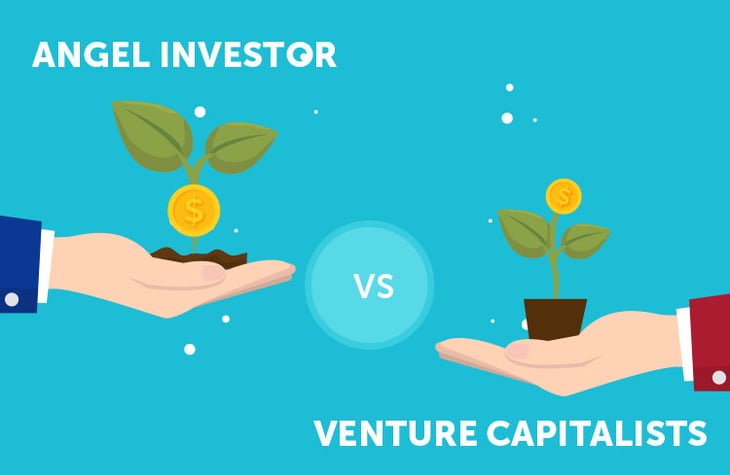
Angel Investor VS. VC Investor
- Angel investors become involved before a company requires a more sizable investment from a VC – typically in seed rather than A,B,C rounds
- Angel investors are known for providing more favourable terms compared to VCs because they focus on helping startups take their first steps, rather than the viability of the business
- An angel investor is a wealthy individual who invests their own money into promising companies, whereas a venture capitalist raises and invests capital from limited partners
- Angel investors are typically less involved in the operations of a company, whereas a VC will likely take a seat on the board
What Is an Angel Investor?
An angel investor (also known as a private investor, seed investor or angel funder) is an individual who provides financial backing from their own resources for small startups or entrepreneurs, in exchange for a piece of the business, usually in the form of equity or royalties. Typically, this type of investor is a friend or family.
Angel investors are involved in early stage funding – also known as seed round funding. At this point, the company could exist merely as an idea or already up and running and ready to expand with additional equipment, staff, and space. Funds coming from an angel investor vary from one-time investments to help boost businesses to on-going injections during difficult early stages.
What to Prepare for this Investor?
At this stage, founders should have done their research and be able to clearly point out what the market opportunity is. Customer personas should be mapped out, in order to be able to pinpoint how this business directly addresses customer needs. Furthermore, to increase leverage, founders should be able to point out an interesting product adoption rate – a rate at which visitors become users of their product or service.
What Is a VC Investor?
A VC, or Venture Capital, investor is an individual providing a more sizable financial backing for companies looking for funding in a Series A, B, C round. VC investors can work individually, but it is more common for them to work for a venture capital firm that pools money from members. Venture capital firms obtain investment capital from pension funds, insurance companies, wealthy investors, and so forth. These entities combined form limited partnerships (LPs). Each entity is considered a partner who invests in the VC fund.
What to Prepare for this Investor?
Their target are companies wanting to commercialise their idea – companies who already have a strong team and unique product with strong competitive advantage. The VC fund will buy equity from these companies, nurture their growth, and maximise their return on investment (ROI).
There are three key documents that you should focus on preparing:
- Financial Model
- Pitch Deck
- Business Plan
The financial model should allow investors to understand:
- How well you understand your business model
- How you will make money
- What hires you will make and when
- What core assumptions you have made for your business
- How long this injection of funding will last
The pitch deck should cover:
- What problem are you solving?
- What is your solution to said problem?
- How big is the problem and the market opportunity?
- Why is what you’re making better than the competition?
- Your Business model and any traction you have achieved to date.
- Why you will win?
- Who you are?
- How will you use the investment?
The business plan should cover:
- The ‘problem’ + solution
- Business model
- Intellectual property
- Competitors + market size
- SWOT Analysis
- Team profile
- History + progress
- Roadmap
- Financials
- The Ask






